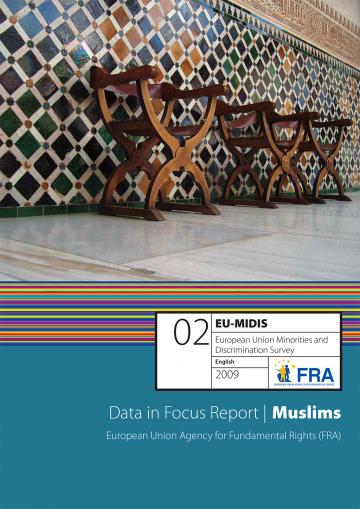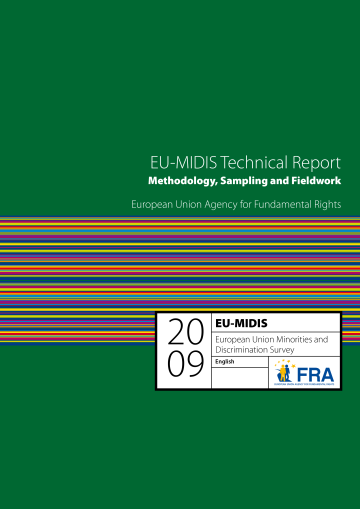
EU-MIDIS Data in Focus Report 2: Muslims
The main results highlight that on average 1 in 3 Muslim respondents were discriminated against in the past 12 months, and 11% experienced a racist crime. The highest levels of discrimination occurred in employment.
Overwhelming majority do not report their experiences of racism
On average, 79% of Muslim respondents, particularly youths, did not report their experiences of discrimination. This means that thousands of cases of discrimination and racist crime remain invisible, and are therefore not recorded in official complaints and criminal justice data collection mechanisms. People without citizenship and those who have lived in the country for the shortest period of time are less likely to report discrimination. Regarding the reasons for not reporting incidents, 59% of Muslim respondents believe that ‘nothing would happen or change by reporting', and 38% say that ‘it happens all the time' and therefore they do not make the effort to report incidents.
Ethnicity is the main reason for discrimination
Of those Muslim respondents who experienced discrimination in the past 12 months, the majority believed that this was mainly due to their ethnic background. Only 10% stated that they thought the discrimination they experienced was based solely on their religion. In fact, wearing traditional or religious clothing (such as a headscarf) does not appear to increase the likelihood of being discriminated against.
